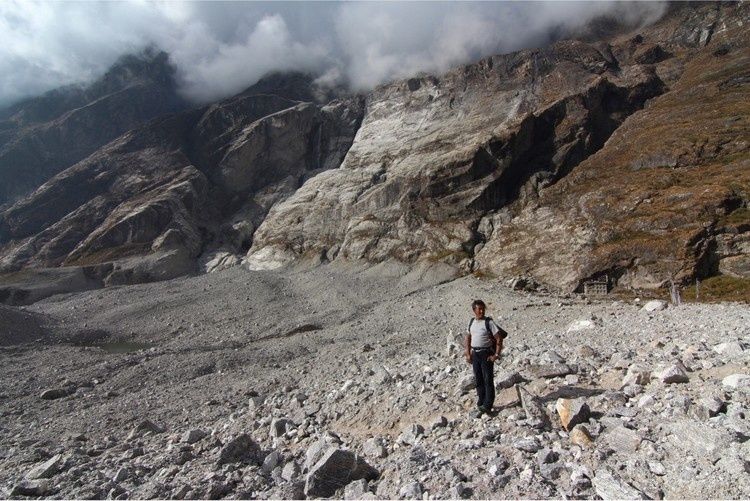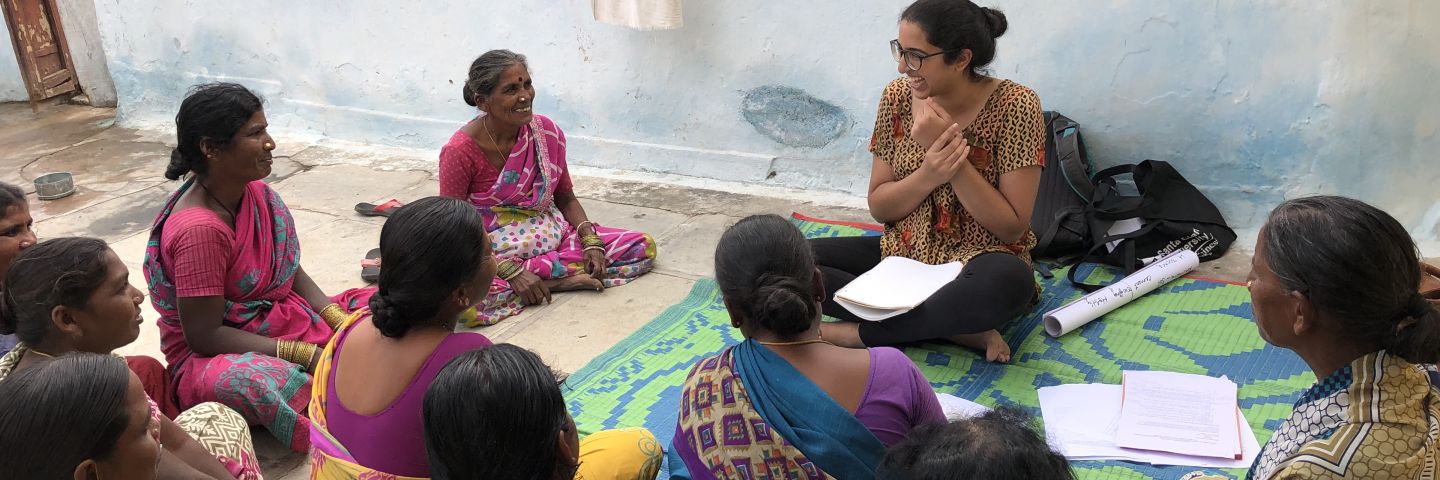Vital Uncertainties: Disaster, Climate Science, and the Political Ontology of an Avalanche in the Langtang Valley of Nepal, by Austin Lord

November 8, 2021
11:00 am
On the 25th of April 2015, during the Gorkha Earthquake, a massive glacier-rock avalanche destroyed the village of Langtang, killing over 300 people and causing unthinkable destruction and loss. My work examines the afterlives of this unthinkable event and the ways in which the people of Langtang have worked to rebuild and revitalize their communities, drawing from over five years of ethnographic research and post-disaster volunteer work, as well as my own firsthand experience of this tragedy. In this lecture, based on a chapter of my forthcoming dissertation, I analyze the ways in which the April 2015 disaster articulates with diverse ways of knowing and living with avalanches in the Langtang Valley, as the people of Langtang and climate scientist work to anticipate increasingly volatile hazard regimes and reckon uncertain climate futures.
The Langtang Valley is one of the most important sites for glaciological and climatological research in the Himalayan region – though relations and dialogue between scientific teams and the Langtang community were both uneven and limited prior to the 2015 disaster. In what ways have these situated patterns of knowledge production changed in the wake of the 2015 event, and in relation to disaster recovery and disaster risk reduction efforts? How do attempts to know cryosphere hazards and climate futures in Langtang draw together concerns about climate justice, epistemological pluralism, political ontology, and moral ecologies in the Himalayan region (cf. Sherpa 2014; Butcher 2017; Gagne 2018)? In what ways do differently positioned Langtangpas experience and conceptualize these vital uncertainties?
Austin Lord is a PhD Candidate in the Department of Anthropology at Cornell. Austin's dissertation research, titled “Inhabiting Impermanence: Disaster, Afterlives, and Vital Uncertainties in the Nepal Himalaya” focuses on the ways the people of Nepal’s Langtang Valley organize time, meaning, and uncertainty as they navigate intersecting disasters – a massive glacier avalanche, an earthquake, a pandemic, and climate change. This work is based on over five years of ethnographic research and volunteer work with Langtang communities. His broader research agenda focuses on post-disaster recovery and disaster risk reduction, hydropower development and water resource management, infrastructural politics, and the making of environmental knowledges in the Himalayan region. His scholarship has been published in journals and forums such Economic Anthropology; Cultural Anthropology; Political Geography; WIREs Water; Modern Asian Studies; Environment and Planning D: Society and Space; Himalaya: The Journal of the Association for Nepal and Himalayan Studies; Eurasian Geography and Economics; The Proceedings of the ACM on Human-Computer Interaction (CSCW), and Limn, as well as a handful of edited volumes. For more information and links to his academic work see here.
Additional Information
Program
Mario Einaudi Center for International Studies
South Asia Program

